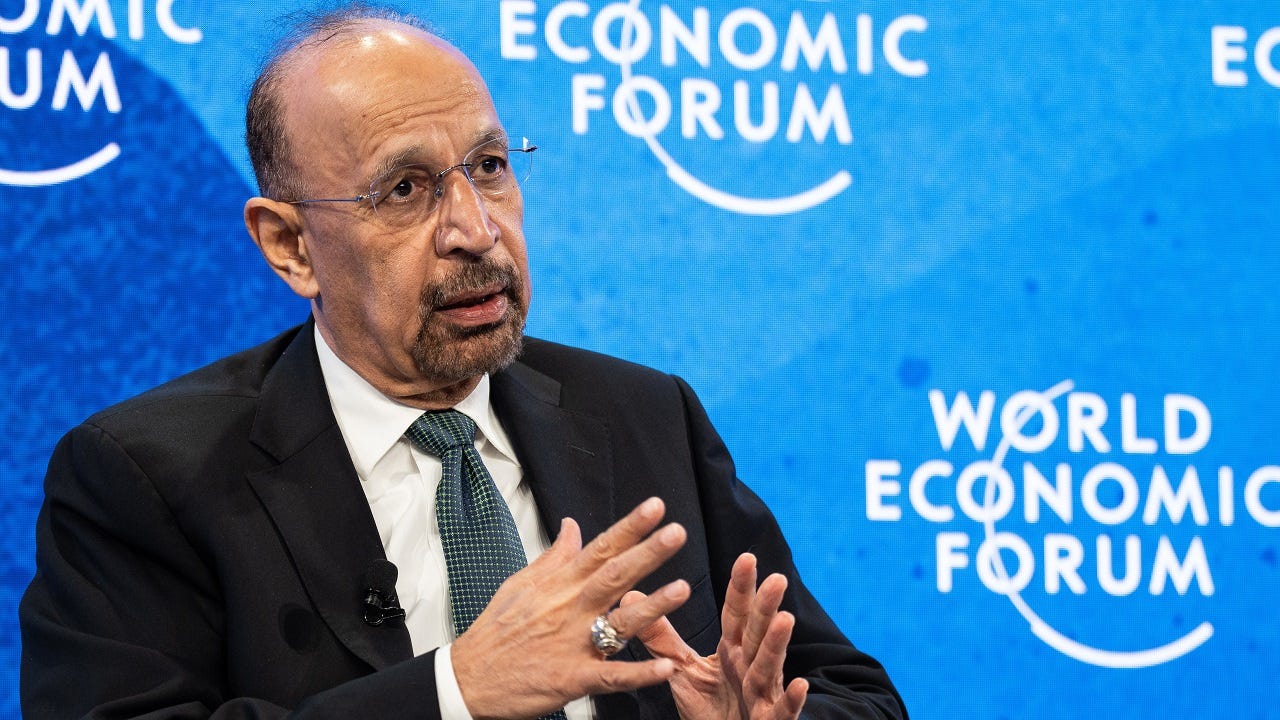Saudi Arabia EV production plans
Saudi Arabia may yet announce two more EV plants
According to last week's CNBC interview with Saudi Arabia’s Minister of Investment Khalid al-Falih about Lucid Motors (see 'Interview of the week' below), the Kingdom is already in 'advanced talks' with other electric vehicle (EV) makers about building assembly plants. At yesterday's World Economic Forum in Davos, Switzerland, the Minister clarified further that the Lucid production plant is likely to be one of three EV plants to be built in the country!
In case you missed it, Lucid Group announced an agreement with the Saudi government in April for the sale of up to 100,000 EVs over a ten year period and committed to build an international manufacturing facility in the Kingdom. Last week, the electric vehicle company disclosed that it had secured $3.4 billion in financing and incentives over the next 15 years from Saudi government entities and investors.
No details have been revealed by the government about other possible EV plants. However, if there were any doubts about Saudi Arabia's commitment to electric vehicles, Lucid's $3.4 billion finance package should have put paid to those. Meanwhile, the infrastructure and services necessary to put more EVs on the roads are rolling out fast. Earlier this month, Petromin Corp.'s e-mobility company Electromin announced a national network of EV charging points with 100 new locations across the country and an associated mobile app. According to Electromin, studies show that there could be 1.3 million EVs sold in the Kingdom by 2030.
So, what do we know about other potential market entrants?
Well, first, we know that there are multiple electronic vehicle manufacturers that have ties to the government, private sector and investors in Saudi Arabia.
French autonomous mobility systems company NAVYA Group has been active in the Kingdom for the past couple of years and has significantly ramped up local initiatives over the past few months. The driverless shuttle maker has a number of trial projects being run in partnership with Saudi Public Transport Company, SAPTCO, including a long-term trial in NEOM using six Navya Autonom® Shuttle Evos.
In March, Navya signed a wide ranging MoU with the Ministry of Transport and Logistics Services. Later that month, the company signed a distribution agreement with Electromin, which included the possibility of setting up a joint venture assembly plant.
No other EV manufacturer has publically mentioned the possibility of establishing a production plant in Saudi Arabia, but General Motors admits that it is, at least, one idea on the table.
Dubai's crown prince Sheikh Hamdan bin Mohammed bin Rashid Al Maktoum announced last year that General Motors' autonomous vehicle subsidiary, Cruise, would make Dubai its first driverless services market outside the U.S. Cruise's deal with Dubai's Roads and Transport Authority will put 4,000 robotaxis on the city's roads by 2030.
Japanese multinational investor Softbank was an early investor in Cruise - and Saudi's Public Investment Fund (PIF), of course, is a major investor in Softbank's funds. Whilst there have been no plans revealed to introduce Cruise to Saudi Arabia, GM has said this year that it will be introducing electric vehicles to the kingdom. It's Africa and Middle East president also said that GM would not rule out opening an automotive production plant either.
Saudi Arabia's government funds and private investors are obviously investing globally in a wide variety of companies, including those in the electric vehicle sector. A key factor in Lucid's plans to open its new factory is that Saudi Arabia currently owns 60% of its shares.
Abdul Latif Jameel, the family group that owns dealerships of Toyota and Lexus, remains the third largest shareholder in EV manufacturer Rivian Automotive Inc. Despite a decline in stock value this year, the investor recently confirmed that it has no plans to reduce its stake. So, Rivian perhaps, could be another potential future local EV producer.
And what else? Tesla?
Founder and CEO of Tesla, Elon Musk, was reportedly counting on Saudi investment to take the company private. However, both Musk and PIF dismissed the possibility in 2018 and shortly afterwards the sovereign wealth fund agreed to invest $1 billion in Lucid Motors.
So, a Saudi Tesla plant does seem unlikely.
Find out more about this story:
Read this week's Reuters story: https://lnkd.in/dHrg9V27
Read the Electromin/Navya press release: https://lnkd.in/dd-YY3Mw


